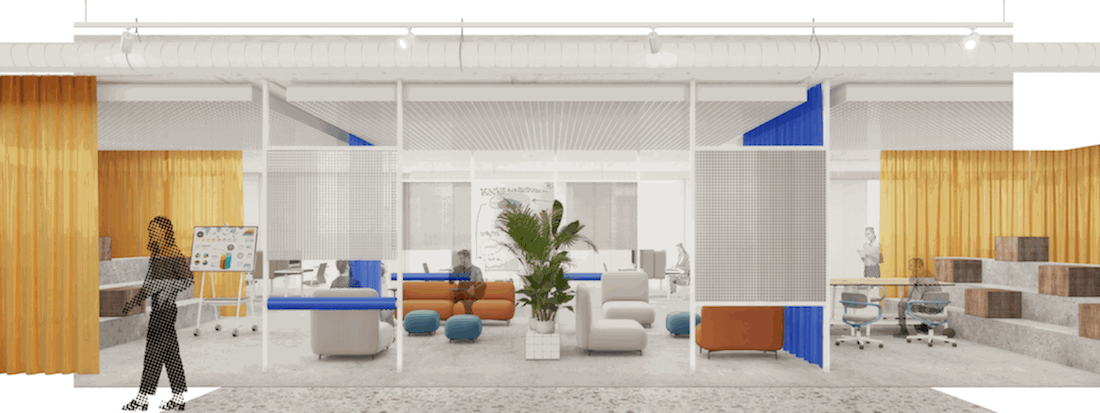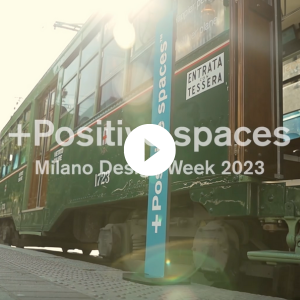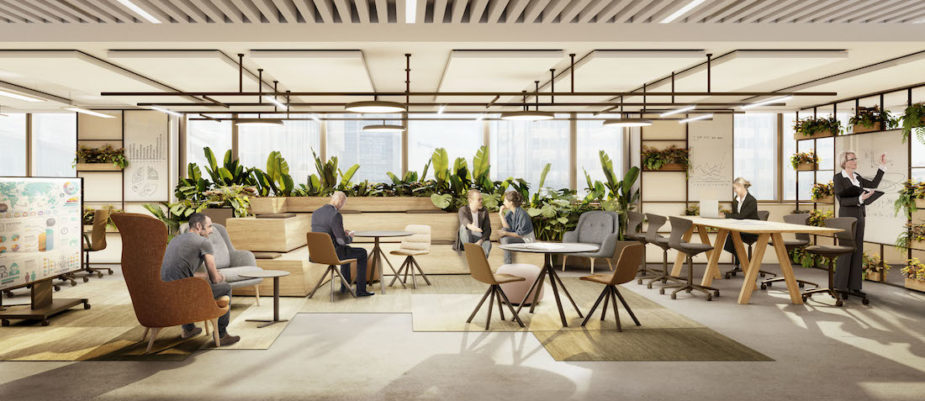
In the medium term, the function of offices will change, moving from “production sites” to “places of interaction”, evolving to maximize employee engagement and productivity. This is the main conclusion of the second part of the Coima‘s survey “The future of offices” developed with Coima Image, architecture, space planning and interior design office.
Among the results: a 5% up to 30% reduction in the need for office space, depending on the increase in remote ways of working, greater attention to “qualifying neighbourhoods” to establish the headquarters, and technological development in the areas of space management and environmental sustainability.
The conclusions of the second part of Coima’s research “Future of Offices” substantially confirm those of the first part of the survey published in October 2020: in general, the revolution will be more about the change of the needs the office has to be able to satisfy, than the reduction of square metres.
Along with the structural increase of remote work, all companies agree that they will need platforms for exchanging ideas, or “hubs” as Alida Catella, CEO and Founder at Coima Image, said, where “people need to go to recharge and regenerate themselves.
Like aeroplanes. When they go to the hubs, what happens? We load up the fuel, check that the spare parts are safe, and then they leave again for different destinations. In the same way, we will have different activities than what you would expect in the office. Maybe there won’t be the usual desks, but open spaces where people will need to confront each other in order to then reach objectives outside those spaces”.
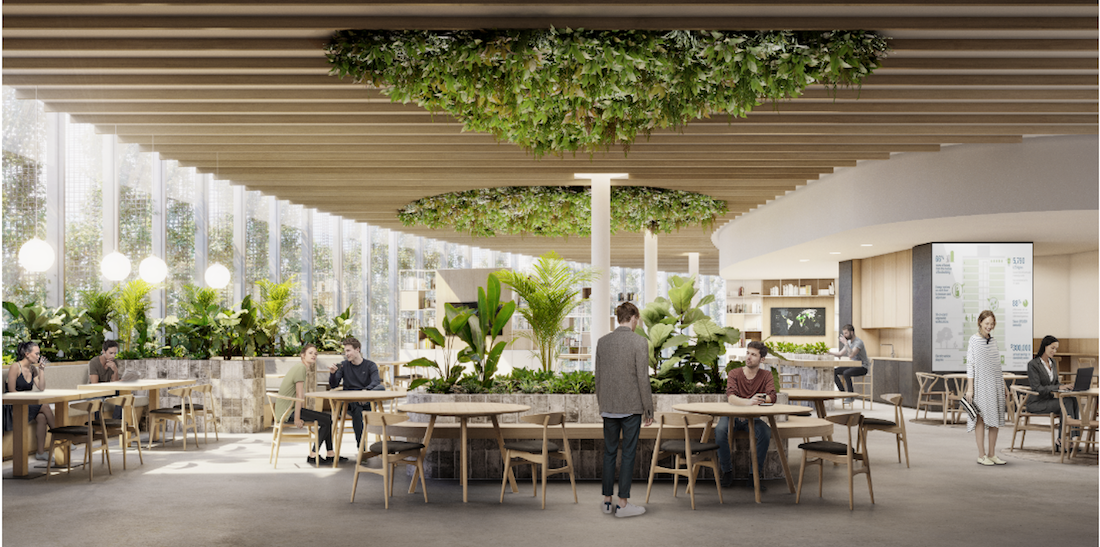
Coima’s research was based on a 30 questions survey and was carried out in Italy, between October 2020 and January 2021, among 38 companies with a significant square meter surface in their workplace.
Overall, the companies examined rent an area of approximately 500,000 square meters (with a minimum of 700 sqm and a maximum of 70,000 sqm), for 30,000 employees (with a minimum of 20 to a maximum of 4,000).
While most companies plan to confirm or increase their number of employees, only 13% of them said that their office spaces will be used to allow employees to do individual work. In fact, 100% indicate that the office is a “space to exchange ideas and work together”, as well as a space to project the corporate brand towards employees (53%) and customers (47%).
Despite this, 68% of companies still see offices as a mix of open spaces, collaboration rooms and individual offices: only 27% would give up the latter. Furthermore, While no company sees a reduction in the use of shared workstations as likely, common areas will surely increase (76%).
It is also interesting to note that among the determining factors for the demand for office space, the location (66%), the flexibility of the spaces (61%) and the quality of the building (61%) will be even more fundamental. Regarding the location, the ability to reach the workplace via public transport is the most important parameter (100%), although the availability of parking spaces remains necessary (79%). Of little importance is the proximity of airports (5%) or the availability of car-sharing services (16%).
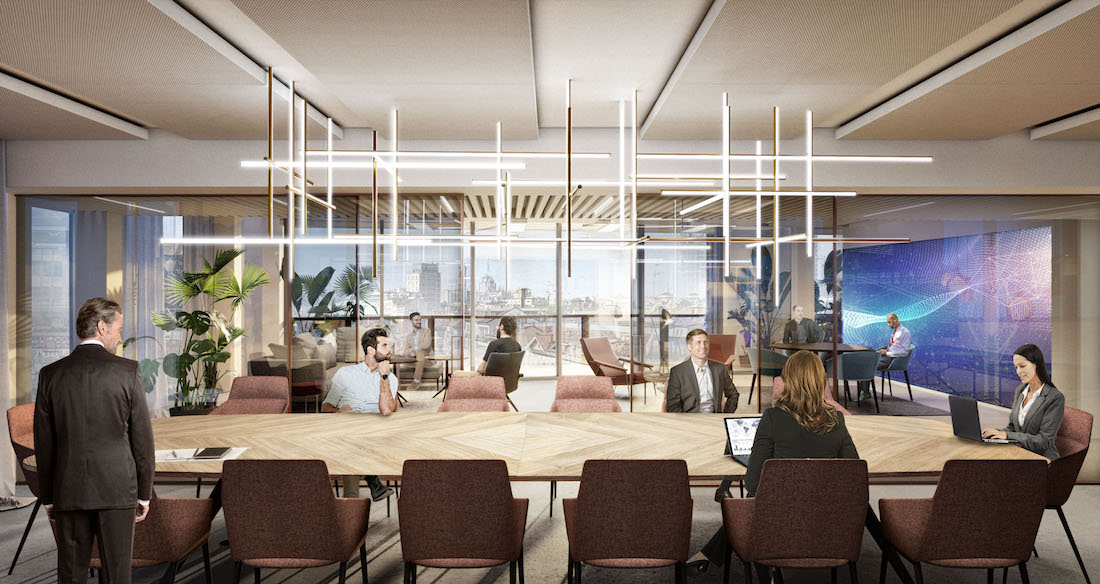
Moreover, among the internal services, the company’s canteens or restaurants appears penalized compared to the pre-COVID era (45%), while coffee areas (71%) and the auditorium (63%) are considered more essential. On the other hand, the surrounding area must provide gyms (79%), restaurant and bar (76% and 68%), health-related services (50%) and kindergartens (42%), in order to help the company to contribute to the employee’s wellbeing.
Finally, the Coima and Coima Image survey confirms the importance of technology, especially with regard to booking systems (92%), monitoring the use of spaces (82%) and accesses (74%), while 71% support the importance of technology for energy efficiency of the building. In fact, sustainability is still at the centre of company policies, both from the human side (84% support the need for flexible work schemes) and from the environmental side (76% support the importance of recycling policies and 74% of reduction of greenhouse gases).
Text by Gabriele Masi.

